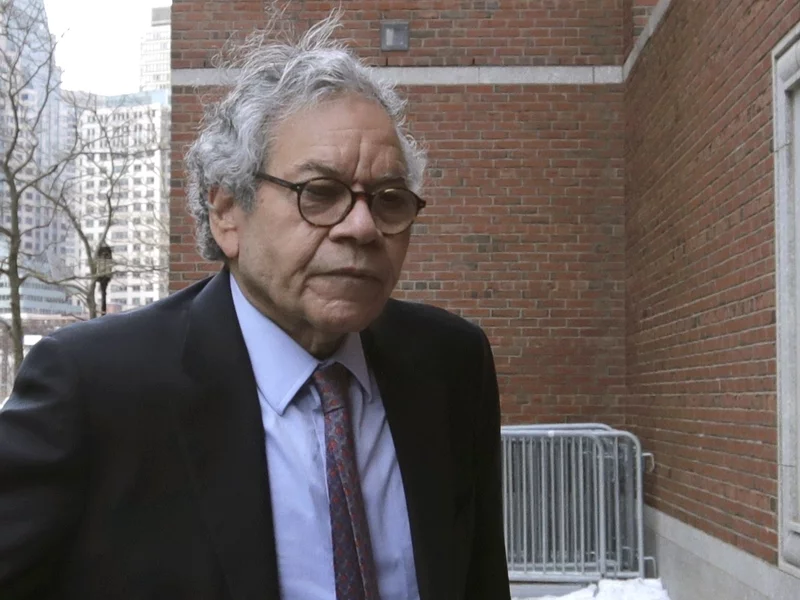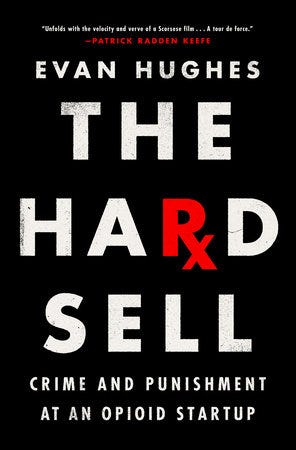The Dark Legacy of Insys: A Cautionary Tale of Drug Marketing
Written on
Chapter 1: The Rise and Fall of Insys Therapeutics
The story of Insys Therapeutics is one of ambition turned to greed, leaving a trail of patients, doctors, and insurers in its wake. While Purdue Pharma's involvement in the opioid crisis has been widely documented, Insys took unethical practices to new heights.

The founder of Insys, John Kapoor, is serving a prison sentence for his role in the company’s racketeering activities. Unlike the executives at Purdue Pharma, who largely escaped accountability, Kapoor was sentenced to five and a half years in federal prison after being convicted along with several other executives.
Section 1.1: Unethical Practices Unveiled
The methods employed by Insys included offering bribes and other incentives to physicians who prescribed its fast-acting painkiller, Subsys, a fentanyl-based product. Bribes ranged from cash to extravagant outings, including trips to strip clubs.
Subsection 1.1.1: The Ripple Effect of Subsys

Despite the convictions of over two dozen individuals connected to Insys, the question remains whether true justice has been served for those affected. The company declared bankruptcy in 2019, and the settlement primarily benefits insurers, with patients receiving little more than refunds of their co-pays.
Worse still, it was only through the bravery of whistleblowers that investigations by the U.S. Department of Justice were initiated, revealing the depths of Insys's misconduct.
Section 1.2: Deceptive Marketing Tactics
Evan Hughes, in his book The Hard Sell: Crime and Punishment at an Opioid Startup, highlights how Insys operated under a veil of secrecy. The company set up a false speaker program to funnel large sums of money to doctors. While drug companies can legally compensate doctors for speaking engagements, Insys exploited this loophole, using it as a facade for illicit payments.
Moreover, Insys encouraged doctors to prescribe Subsys for unapproved conditions, despite it being FDA-approved only for specific cases of breakthrough cancer pain. The sales representatives pressured doctors to write more prescriptions, often for conditions that were not medically justified.

Insys also misled insurers regarding patients’ actual needs for Subsys, fabricating symptoms to secure approval for the costly medication. This manipulation not only defrauded insurers but also put patients at risk.
Chapter 2: The Fallout and Future Implications
The fallout from Insys's actions has raised serious concerns about ethical standards in the pharmaceutical industry.
In the video "Why Doctors Take Money from Pharmaceutical Companies," the complexities of the doctor-pharma relationship are explored, shedding light on why such practices persist in the industry.
Another insightful video, "Doctors Subconsciously Influenced by Pharma," delves into the psychological factors that lead healthcare providers to act against their better judgment when it comes to pharmaceutical promotions.
As we reflect on the lessons learned from Insys, it’s clear that vigilance is essential to prevent similar abuses in the future.

Partial sources: * The Hard Sell: Crime and Punishment at an Opioid Startup (Doubleday, 2022) by Evan Hughes. * "Founder and Four Executives of Insys Therapeutics Convicted of Racketeering Conspiracy," U.S. Department of Justice press release, May 2, 2019. * Empire of Pain: The Secret History of the Sackler Dynasty (Doubleday, 2021) by Patrick Radden Keefe. * "Opioid-Maker Insys Wins Court Approval of Bankruptcy Plan," The Wall Street Journal, Jan. 16, 2020. * "Opioids, Inc.," Frontline/PBS, June 23, 2020. * "Insys Whistleblower Named 2019 Whistleblower of the Year." * "A Time of Crisis for the Opioid Epidemic in the USA," The Lancet, July 24, 2021.